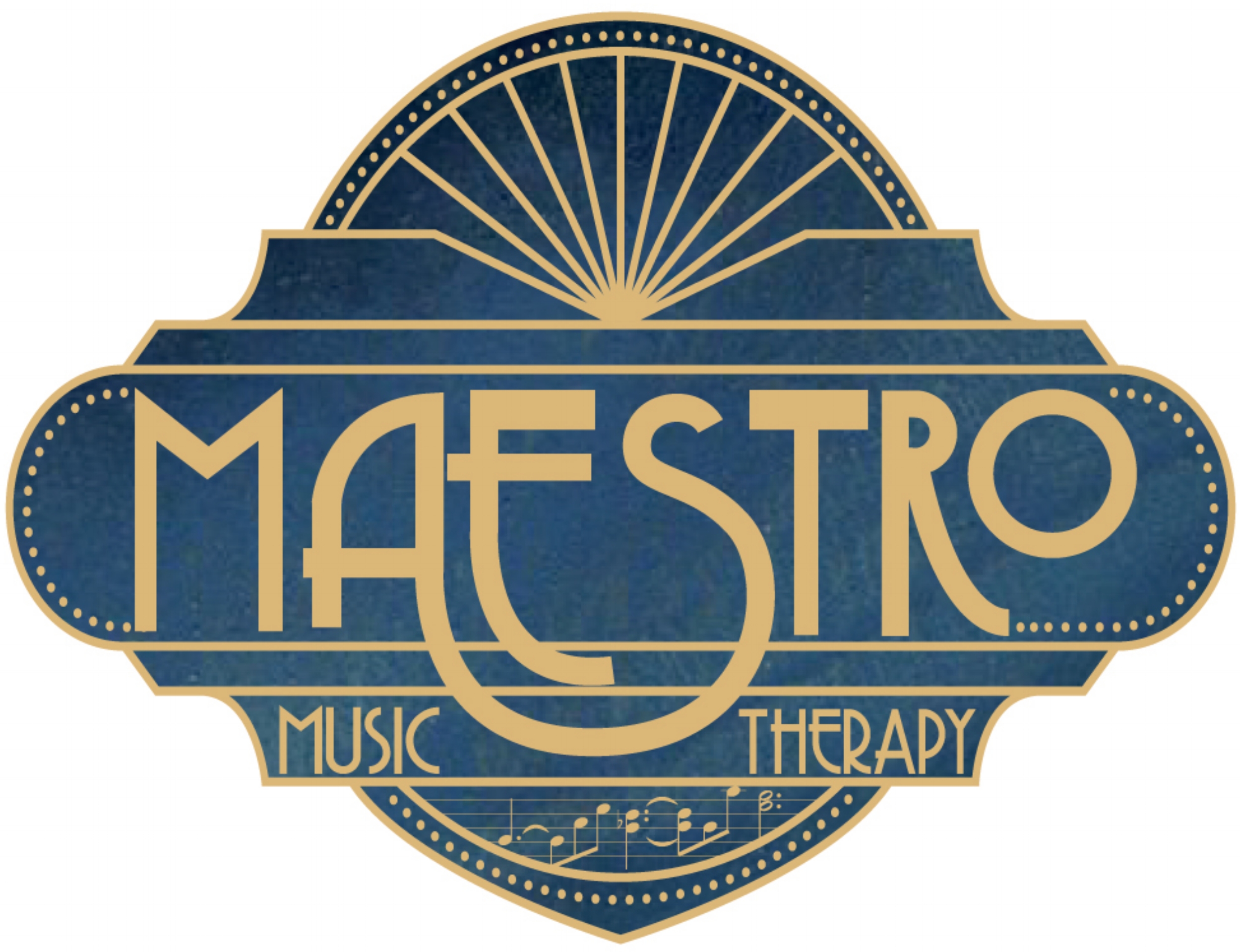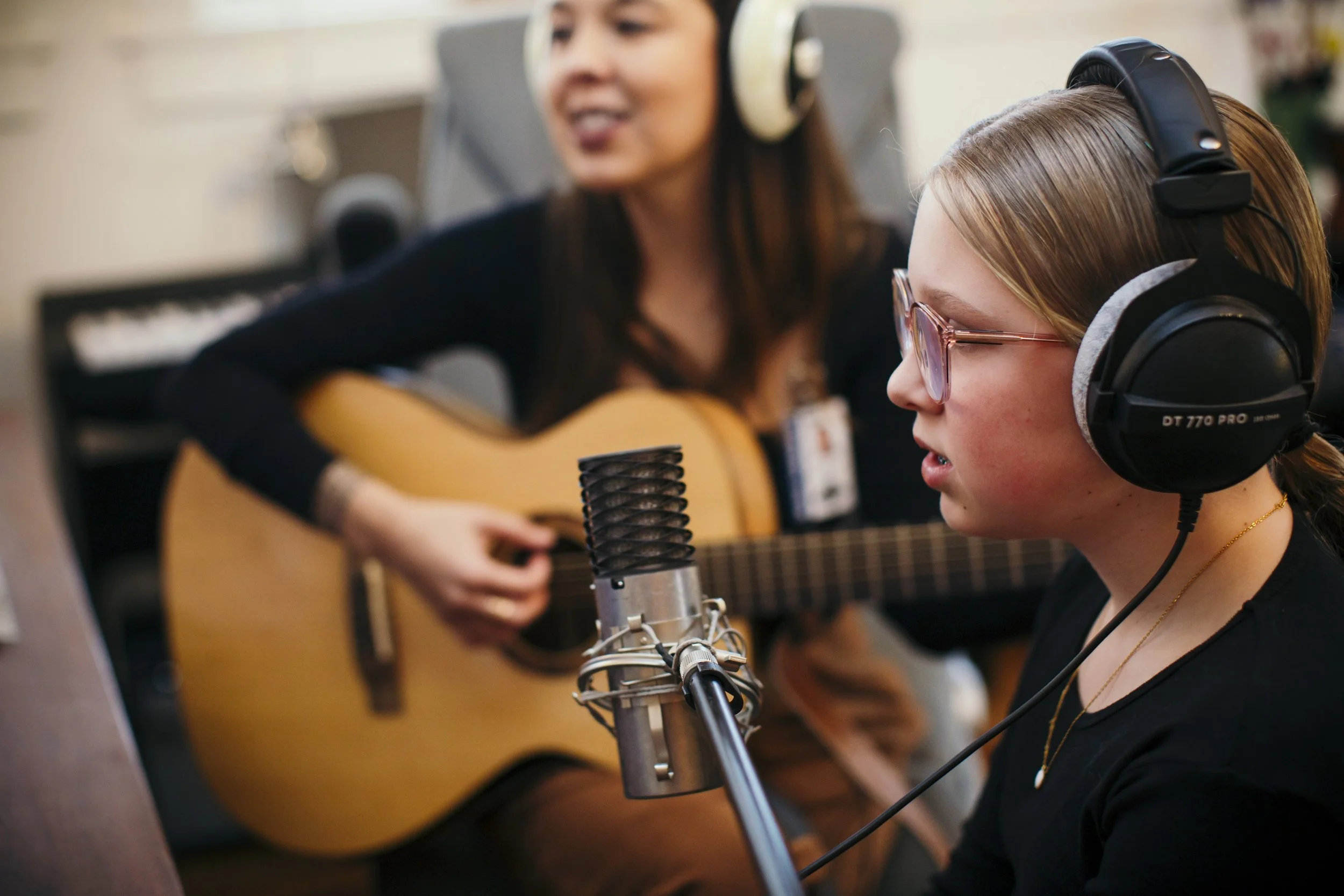Communities SERVED
Music therapists work with people of all ages and abilities. Below is a list of some of the communities served by Maestro Music Therapy. Please contact us if your situation is not included below, and we can talk about whether music therapy would be a good fit!
Every music therapy session is individualized based on the unique needs of the client. Because of this, there is no one format to a music therapy session. For an individual in hospice care struggling with pain, patient preferred music might be presented at bedside to assist with relaxation and comfort. For a child with special needs working on developing verbal skills, songs that target the words they are working on would be presented. Goals and objectives will be adapted and updated throughout therapy process.
Children/Adults with Special Needs
Music therapy can be an effective form of therapy for children and adults with special needs— whether it is working on speech, motor function, cognitive development, social skills, or providing an outlet for self-expression. Music therapy sessions are individualized based on the needs and interests of the person, and can include improvisation, active instrument play, singing, and movement.
End-of-Life Care and Grief
When a person is reaching the end of their life, music can be a powerful medium to provide comfort, reduce pain and anxiety, inspire life review or create legacy projects. The music therapist responds to the person’s needs in the moment, adapting each session. Interventions might include live music at bedside to assist with pain management, songwriting as a way to express or leave a message, or engaging in music making for increased quality of life. During the actively dying phase, the music therapist can provide live music that was important to the person and family, providing a powerful holding space for the family to gather and be with their loved one.
After the loss of a loved one, music therapy can assist in exploring grief, whether through songwriting, music and imagery experiences, or music making.
Rehabilitation
Research has documented the efficacy of music therapy in neuro-rehabilitation, from brain injuries, to neurodegenerative diseases. Music therapists can assist in regaining speech, motor and cognitive function through music intervention.
Medical Care
Music therapy can assist those with medical issues such as cancer, chronic illness, autoimmune disease, terminal illness manage pain, assist with coping, decrease isolation, and provide opportunities to explore emotions surrounding their disease process.
Older Adults & Memory Care
Music interventions with older adults is well documented, assisting in reminiscence, orientation, mood enhancement, comfort, decreasing isolation and improved quality of life. Music therapy interventions are individualized based on the music that was important throughout the individual’s life.
Babies/Infants and Parents
Music therapy can be a wonderful way to encourage bonding, whether with a parent struggling with postpartum depression, or a newly adopted child. In addition, babies who have spent time on the NICU can also benefit from music therapy to assist with developmental goals. Music therapy can provide parents with tools to use with their baby for comfort, soothing, and developmental play.
Mental Health
Music therapy can assist those working through depression and anxiety and other mental health challenges by providing a space to explore their feelings, and develop coping skills. Music often can be a companion for teens or adults struggling with mental health challenges, and working with a music therapist in conjunction with a primary care therapist can be a powerful way to find their voice.


















